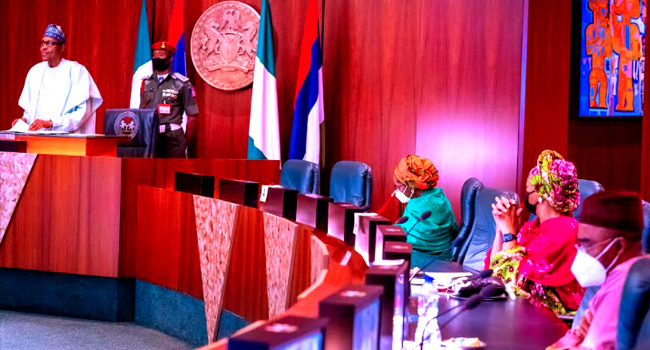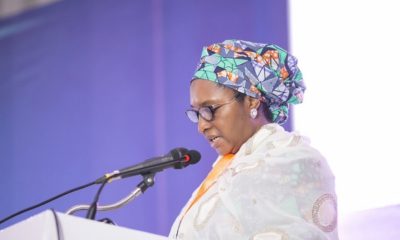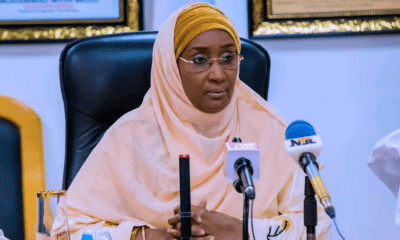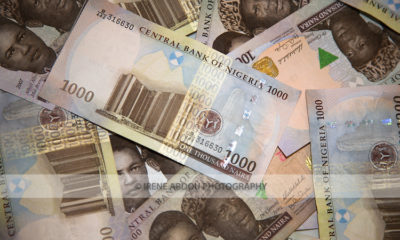The federal government has initiated an order to cut the cost of governance in the face of dwindling revenue occasioned by the headwinds of the COVID-19 pandemic and the attendant global economic tailspin.
Minister of Finance, Budget and National Planning, Zainab Ahmed, said yesterday in Abuja that the measures were targeted at reducing recurrent expenditure, which is projected to gulp about 41.5 per cent of the total provisions of N13.588 trillion in the 2021 budget, amounting to N5.64 trillion.
She stated that President Muhammadu Buhari had directed the salaries and wages committee to review the payroll of public servants as well as consider the merger of some agencies.
Besides, the government will also remove some unnecessary items from the budget as a move to cut the cost of governance.
Ahmed spoke at a policy dialogue on ‘corruption and cost of governance in Nigeria,’ organised by the Independent Corrupt Practice and other Related Offences Commission (ICPC).
Also at the occasion, the Director-General, Budget Office, Mr. Ben Akabueze, proposed a constitutional amendment to pave the way for the restructuring of the country into six regions instead of the present 36 states structure. This, he said, would help to reduce the rising cost of governance.
Ahmed stated that the proposed cost-saving measures was aimed at streamlining government expenditure with revenue.
She said: “We still see government expenditure increase to a terrain twice higher than our revenue.”
She urged all government agencies to come together to trim the cost amid the country’s dwindling revenue.
According to her, the nation’s budgets are filled every year with projects that are recycled and that are also not necessary.
“Mr. President has directed that the salaries committee that I chair, work together with the head of service and other members of the committee to review the government pay rolls in terms of stepping down on cost,” she added.
The minister said the federal government would also review the number of government agencies in terms of their mandates, adding that the government will consider merging two agencies with the same mandate.
She said: “We need to work together; all agencies of the government to cut down our cost. We need to cut down unnecessary expenditures–expenditures that we can do without.
“Our budgets are filled year-in-year out with projects that we see over and over again and also projects that are not necessary.”
Akabueze, in a paper titled: ‘Reducing the Cost of Governance in Nigeria,’ described the country’s current system of democratic governance as very expansive and expensive.
He said the constitutional provision that mandated the president to appoint a minister from at least each of the 36 states, should be amended to reduce the number of federal cabinet members.
He cited the large federal structure to be one of the drivers of the high cost of governance and engendering public outcry that government spending is largely on recurrent activities at the expense of capital projects.
While describing the subsisting fiscal policy as unsustainable, Akabueze said the persistent call for the reduction of governance cost had continued to gain momentum in view of its impact on government fiscal situation.
He stated that the cost of governance is considerably cheaper in the United States from where Nigeria copied the presidential system of government.
According to him, the general cost of administration in the United States is less than 10 per cent of the total annual budgets while the United States, with a higher population than Nigeria, has only 15 secretaries and executive departments as against Nigeria, which has 27 ministers, 16 ministers of state and 27 ministries.
He lamented that the federal government is maintaining 943 Ministries Departments and Agencies (MDAs) with many of them having duplicated functions.
“There are 541 federal government-owned public corporations and enterprises. We need to cut these in order to install efficiency in governance. Also, we have a bloated civil service. The current civil service structure and size is clearly unsustainable for Nigeria’s economy,” he said.
He warned against the tendency where the civil service is accorded political, ethnic and religious patronage.
“A comprehensive staff auditing and job available is imperative to determine the right size of the federal civil service without having any adverse effect on the service. And to avoid duplication in the civil service, the staff rationalisation programme should be gradual,” he added.
Akabueze said the federal government’s recurrent spending accounted for more than 75 per cent of the actual MDAs expenditure between 2011 and 2020, in addition to personnel cost which accounted for government significant spending.
He accused the MDAs of incurring excessive personnel costs and wilfully indulging in wide range of underhand practices that are driving governance cost out of the ordinary.
According to him, in 2016, personnel cost was N1.87 trillion while at the moment the same cost has spiralled to over N3 trillion.
The effect of the rising cost of running government, Akabueze added, is the reason why only 30 percent of the budget is available for capital project and the cause behind many abandoned capital projects nationwide.
He said: “Personnel cost accounted for 31 per cent and 63 per cent of the total spending and retained revenue in 2020. In the USA, the general administration cost is less than 10 per cent of total budget.’’
He challenged Nigerians to task themselves on governance, saying that the success story of the Asian Tiger was a product of sound leadership and determination.
ICPC Chairman, Prof. Bolaji Owasanoye, described the cost of governance as the driver of corruption in Nigeria.
He said the government was committed to improving the country’s revenue by focusing on new and existing sources and by streamlining payroll.
He added that the federal government would also ensure removal of subsidies and reduction in the cost of contracts and procurement are for the benefits of the vulnerable.
He listed critical area of concern to include payroll padding and the phenomenon of ghost workers.
The federal government’s intended cost-cutting approach is coming amid a report by a public finance transparency advocacy firm, BudgIT that the 2021 federal budget contains over 316 duplicated capital projects worth N39.5 billion.
BudgIT, a public finance transparency advocacy firm, said in a report that the duplication of projects was just one among other loopholes for corruption in the budget.
It said: “Our investigations into the 2021 budget revealed at least 316 duplicated capital projects worth N39.5 billion, with 115 of those duplicate projects occurring in the Ministry of Health. This is very disturbing, especially considering the health infrastructure deficit and the raging COVID-19 pandemic affecting Nigeria.
“BudgIT also found zero audit records of the N10.02 trillion received by the security sector between 2015 and 2021.”
It also alleged that budgetary provisions were made for agencies for projects that are beyond their execution. It added: “Even worse, agencies now receive allocations for capital projects they cannot execute. For example, the National Agriculture Seed Council has an allocation for N400m to construct solar street lights across all six geopolitical zones, while the Federal College of Forestry in Ibadan in Oyo State got N50m for the construction of street lights in Edo State.
“These are aberrations that need to be corrected.”

 Naira4 weeks ago
Naira4 weeks ago
 Naira4 weeks ago
Naira4 weeks ago


 Naira4 weeks ago
Naira4 weeks ago




 Naira3 weeks ago
Naira3 weeks ago
 Commodities4 weeks ago
Commodities4 weeks ago


 News4 weeks ago
News4 weeks ago


 Banking Sector4 weeks ago
Banking Sector4 weeks ago
 Travel4 weeks ago
Travel4 weeks ago






















